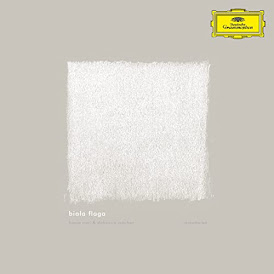Biała flaga
Hania Rani – Piano
Dobrawa Czocher - Cello
available on Spotify, Tidal, Apple Music, Youtube Music
When
it comes to recommending contemporary classical music, most would probably suggest
the usual household names like Yann Tiersen, Ludovico Einaudi or Ryuichi Sakamoto.
But of course, there are so much more to discover beyond these popular few.
Biała flaga is 100% Polish affair, featuring contemporary
classical music from Poland and performed by Polish pianist Hania Rani and cellist
Dobrawa Czocher. I chanced upon this CD by accident because I wanted to check out further
what Dobrawa Czocher had recorded, and I was glad I did. Hania Rani herself contributed a few compositions
of her own, but the spotlight of this CD is on the compositions of the late Grzegorz
Ciechowski, who tragically passed away at the age 44 in 2001.
Ciechowski’s music could be best described
as Yann Tiersen on steroids. More neo-classical than minimalistic, each of his
compositions featured here are expertly crafted, with hauntingly beautiful counterpoints
and explorations of sound that elevate them beyond just your typical easy-listening
music. The superlative Odchodząc exemplifies this; the
music begins simply enough before building up to a highly elaborate climatic
section featuring complex interactions between the piano and cello that somehow
still sounds ethereal.
Hania Rani’s
compositions are equally as enjoyable. Her style is decidedly more minimalistic
and closer to Philip Glass’ like exemplified in her meditative Intermezzo in
F Minor. Both she and Dobrawa Czocher must be commended for their excellent
and harmonious performance, without which these compositions would not nearly
be as enjoyable. Here are two musicians who fully respected each other; each of
them never tried to outshine each other and the ensemble work was tight
throughout.

Comments
Post a Comment